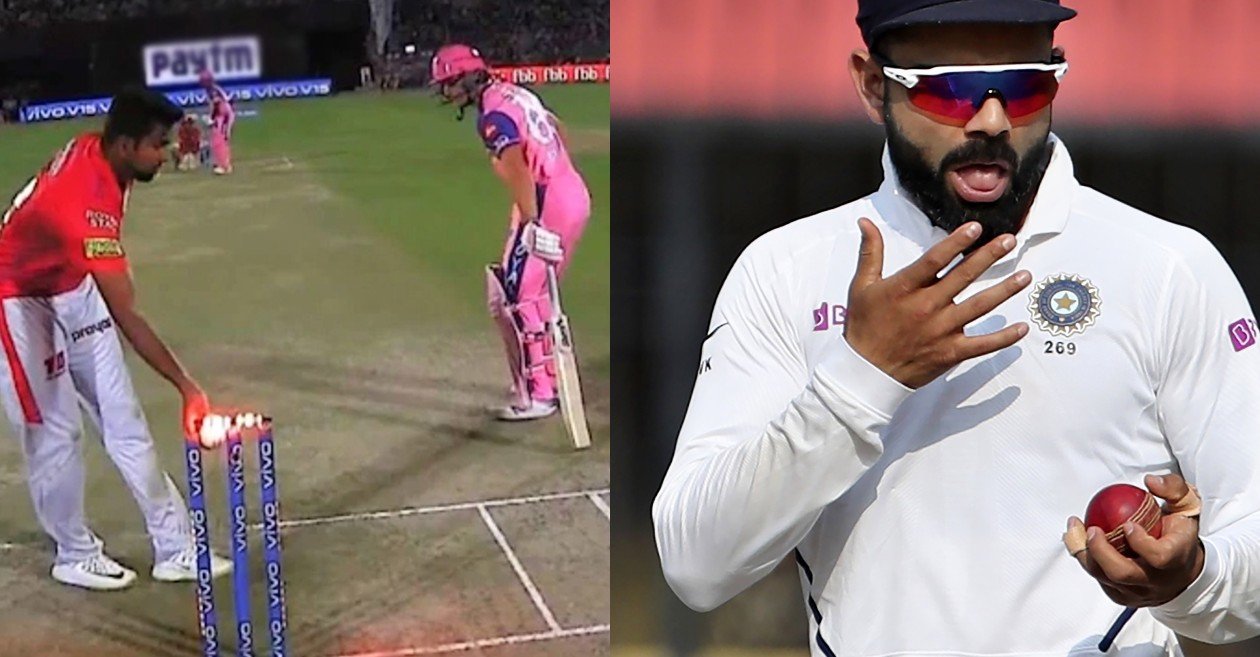[ad_1]

The prestigious Marylebone Cricket Club (MCC) on Tuesday, released the new and updated rules and laws of cricket for the 2022 Code. The new rules will come into force from October 1, 2022. Notably, The MCC Laws sub-committee has suggested some changes for the 2022 Code, which were approved by the main committee.
The changes are intended to shape the game of cricket as it should be played. According to the fresh norms, the new batter will strike even if the players cross when the catch is taken. Further, a permanent ban has been levied on the use of saliva to shine the cricket ball.
The umpires will judge wides considering the batter’s stance, and penalty runs will be awarded to the batting side if any fielder is be deemed to have moved unfairly. Here is the complete list of some notable changes:
- Law 1 – Replacement players
A new clause has been introduced in Law 1.3, which suggests that replacements will now be treated ‘as if they were the player they replaced, inheriting any sanctions or dismissals that player has done in that match’.
- Law 18 – Batters returning when Caught
The MCC has changed Law 18.11, meaning now when a batter is out Caught, the new batter shall come at the striker’s end to face the next ball (unless it is the end of an over).
- Law 20.4.2.12 – Dead ball
The new suggestion in the case of Dead Ball Law is the calling of such delivery if either side is disadvantaged by a person, animal or other objects within the field of play.
- Law 21.4 – Bowler throwing towards striker’s end before delivery
In another change, the MCC mentioned that if bowlers throw the ball to run out the striker before entering their delivery stride, umpires will call it Dead Ball. Earlier, this was used to be called a No-Ball.
- Law 22.1 – Judging a Wide
The MCC has also made some changes in Law 22.1 which gave batters an unfair advantage by moving around the crease before the ball was bowled. If the bowler followed the batter and bowled outside of either off or onside, the delivery was often termed wide.
But now a Wide will apply to where the batter is standing, where the striker has stood at any point since the bowler began their run-up, and which would also have passed wide of the striker in a normal batting position.
- Law 25.8 – Striker’s right to play the ball
The MCC suggested a change in the new Law – Law 25.8 – that will only allow the batters to play the ball as long as “some part of their bat or person remains within the pitch.” If a batsman ventures beyond that, then the umpire will call it a Dead Ball.
- Laws 27.4 and 28.6 – Unfair movement by the fielding side
In accordance with the changes, if a member of a fielding side moves unfairly while the ball is being bowled, then the batting side will be awarded five penalty runs. Earlier, it was punished only with a ‘Dead ball’.
- Law 38.3 – Moving the running out of the non-striker
To break the stigma around the run-out at the non-striker’s end, MCC has now moved the mode of dismissal from Law 41 (Unfair play) to Law 38 (Run out). It means the ‘Mankad’ is now a legitimate mode of dismissal.
The new Laws will not allow the use of saliva on the ball. Now, using saliva will be treated the same way as any other unfair method of changing the ball’s condition.
[ad_2]
#making #Mankad #legitimate #dismissal #banning #saliva #updated #MCC #rules